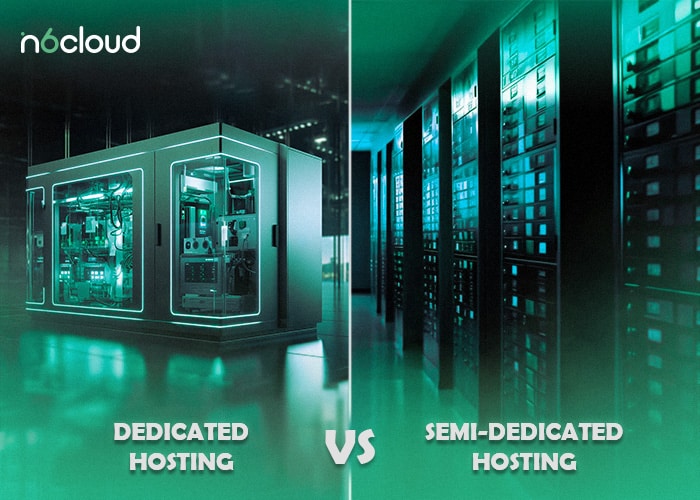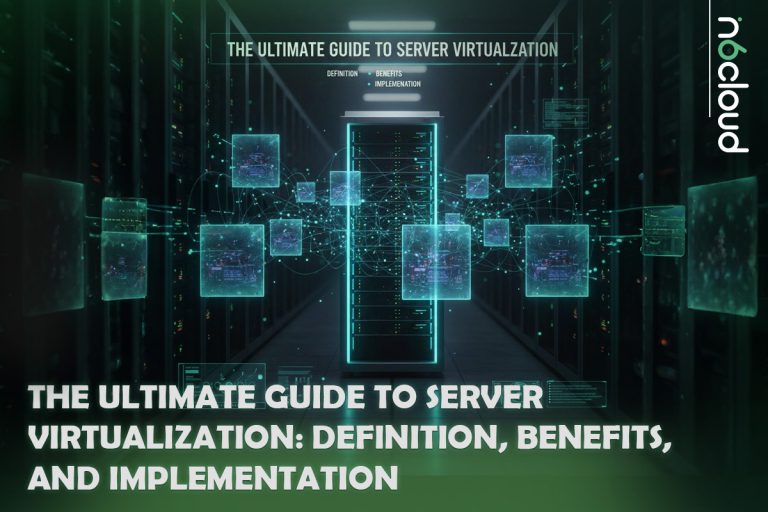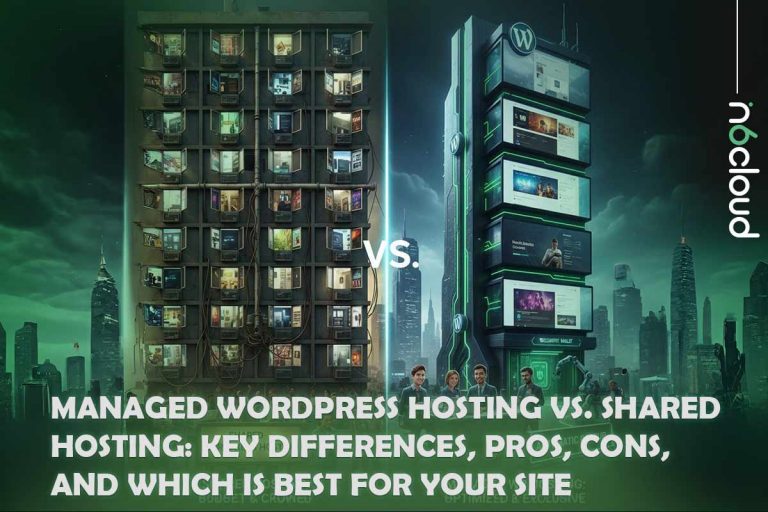In the vast landscape of web hosting services, two prominent options stand out: Dedicated Hosting and Semi-Dedicated Hosting. These solutions cater to different needs and come with their own set of advantages and drawbacks. Understanding the distinctions between the two is crucial for making informed decisions about hosting your website. This comprehensive guide will explore the intricacies of Dedicated Hosting and Semi-Dedicated Hosting, exploring their features, benefits, and ideal use cases.
What is Dedicated Hosting?
Dedicated hosting is an arrangement where an entire physical server is leased to a single client. All server resources, including CPU, RAM, storage, and bandwidth, are exclusively dedicated to the client’s website or applications in this setup. This isolation provides unparalleled performance, security, and control.
Pros of Dedicated Hosting:
- Unmatched Performance: With dedicated resources, websites hosted on dedicated servers experience consistent and reliable performance, even during peak traffic.
- Enhanced Security: Since the server is not shared with other users, there is a reduced risk of security breaches or data leaks. Clients have complete control over security configurations and can implement stringent measures to protect their data.
- Complete Control: Clients have root access to the server, allowing them to customize software configurations, install specific applications, and tailor server settings according to their requirements.
- Scalability: Dedicated servers offer high scalability, allowing businesses to easily upgrade server resources as their needs evolve.
- Greater Reliability: Dedicated hosting minimizes the risk of downtime associated with shared hosting environments, providing a more reliable hosting solution for mission-critical websites and applications.
Cons of Dedicated Hosting:
- Higher Cost: Dedicated hosting typically comes at a higher price point compared to shared or VPS hosting plans, making it less budget-friendly for smaller businesses or individuals.
- Technical Expertise Required: Managing a dedicated server requires a certain level of technical expertise or the assistance of a system administrator, especially when it comes to server maintenance, security updates, and troubleshooting.
- Resource Management: While dedicated servers offer ample resources, inefficient resource management or underutilization can lead to wasted costs.
When to Choose Dedicated Hosting:
- High-Traffic Websites: Websites experiencing heavy traffic volumes or requiring robust performance are best suited for dedicated hosting.
- Resource-Intensive Applications: Applications with high computational requirements or demanding resource usage, such as databases or multimedia streaming platforms, benefit from dedicated server resources.
- Enhanced Security Needs: Businesses dealing with sensitive data or requiring strict compliance with security standards often opt for dedicated hosting to ensure maximum control and security.
What is Semi-Dedicated Hosting?
Semi-dedicated Hosting, also known as fully managed VPS (Virtual Private Server) Hosting, strikes a balance between shared and dedicated hosting. In this setup, multiple clients share a single physical server, but each client is allocated dedicated resources within a virtualized environment. Semi-dedicated hosting plans typically include managed services, where the hosting provider handles server management tasks, such as maintenance, security updates, and technical support.
Pros of Semi-Dedicated Hosting:
- Cost-Effectiveness: Semi-dedicated hosting offers a more affordable alternative to dedicated hosting, making it accessible to businesses with moderate resource requirements and budget constraints.
- Managed Services: With semi-dedicated hosting, clients benefit from comprehensive server management by the hosting provider, reducing the burden of technical tasks and allowing businesses to focus on their core operations.
- Isolated Resources: While resources are shared among multiple clients, each client is allocated dedicated resources within the virtual environment, ensuring consistent performance and minimizing the impact of neighbouring websites.
- Scalability: Similar to dedicated hosting, semi-dedicated hosting allows for easy scalability, enabling businesses to upgrade or downgrade server resources as needed.
- Security: Managed hosting providers often implement robust security measures and regular updates to protect servers and client data from threats and vulnerabilities.
Cons of Semi-Dedicated Hosting:
- Limited Control: Unlike dedicated hosting, clients have less control over server configurations and software installations since the hosting provider manages the server environment.
- Resource Sharing: While resource allocation is isolated within the virtual environment, performance may still be affected by other clients’ activities on the server, especially during peak usage periods.
- Dependency on Hosting Provider: Businesses relying on managed services must choose a reputable hosting provider capable of delivering reliable support and maintaining server uptime.

When to Choose Semi-Dedicated Hosting:
- Growing Websites: Businesses experiencing moderate growth in website traffic or resource requirements can benefit from semi-dedicated hosting as a scalable and cost-effective solution.
- Managed Services: Organizations lacking the technical expertise or resources to manage server operations internally can leverage semi-dedicated hosting to offload server management tasks to the hosting provider.
- Stability and Support: Businesses seeking a balance between performance, affordability, and reliable support may find semi-dedicated hosting an ideal choice.
Comparing Dedicated vs. Semi-Dedicated Hosting:
Choosing between dedicated and semi-dedicated hosting ultimately depends on your specific requirements, budget, and technical expertise. Here’s a comparative overview to help you make an informed decision:
| Features | Dedicated Hosting | Semi-Dedicated Hosting |
| Resource Allocation | Dedicated server resources (CPU, RAM, storage, bandwidth) exclusively for one client | Dedicated resources within a virtualized environment, shared with multiple clients |
| Control | Full control over server configurations and software installations | Limited control; server managed by hosting provider with pre-installed control panel for ease of management |
| Performance | Unparalleled performance and reliability, ideal for high-traffic websites or resource-intensive applications | Consistent performance within a virtualized environment, suitable for moderate traffic websites |
| Cost | Higher cost due to exclusive resource allocation | More cost-effective compared to dedicated hosting, making it accessible to businesses with moderate budgets |
| Scalability | High scalability, allowing easy upgrade or downgrade of server resources | Scalable plans to accommodate changing resource requirements |
| Managed Services | Self-managed or optional managed services for an additional fee | Fully managed services are included in the hosting plan, with support for server management tasks |
| Security | Full control over security configurations and measures | Robust security measures implemented by the hosting provider, with regular updates and monitoring |
| Technical Expertise | Requires technical expertise for server management and maintenance | Suitable for businesses without technical expertise, with managed services provided by the hosting provider |
| Ideal Use Cases | High-traffic websites, resource-intensive applications, businesses requiring maximum control and performance | Moderate traffic websites, businesses seeking a balance between performance, affordability, and managed support |
In conclusion, whether you opt for dedicated or semi-dedicated hosting depends on factors such as your performance requirements, budget constraints, technical expertise, and preference for managed services. By understanding the distinctions between these hosting solutions and evaluating your specific needs, you can make an informed decision that aligns with your business goals and ensures a reliable hosting environment for your website or applications. Additionally, exploring reputable providers such as n6 Cloud can offer tailored solutions to further enhance your hosting experience.






